
Your gelding started acting a little bit uncomfortable just over an hour ago. By the time your vet arrived, the poor horse was in a full-blown sweat, pawing violently and throwing himself down in the barn aisle no matter how hard you tried to keep him on his feet. Even after IV sedation and a dose of pain medication, he was still uncomfortable. The look on your vet’s face told you everything you needed to know. Her next question confirmed your greatest fear. “Is he a candidate for a colic surgery?”
There’s nothing more stressful than a severely colicky horse. And if your horse needs surgery to correct his colic, there’s no other option that’ll save his life. To make things even scarier, time can make the difference between a successful outcome and disaster. When your vet asks you whether your horse is a candidate for colic surgery, she needs an answer, and she needs it now. That’s why it’s best to know that answer before colic ever strikes.
In this article, I’m going to help you determine whether you’d say yes if your horse needed colic surgery. I’ll start by outlining basic facts about the procedure and what you can expect. Then, I’ll explain what things your vet might do differently for a colicky horse where surgery would be the choice, compared to what she’d do if it were not an option. Finally, I’ll outline five factors to consider when making that decision for your own horse.
‘The look on your vet’s face told you everything you needed to know.’
First, the Facts
Diese Geschichte stammt aus der Winter 2020-Ausgabe von Horse and Rider.
Starten Sie Ihre 7-tägige kostenlose Testversion von Magzter GOLD, um auf Tausende kuratierte Premium-Storys sowie über 8.000 Zeitschriften und Zeitungen zuzugreifen.
Bereits Abonnent ? Anmelden
Diese Geschichte stammt aus der Winter 2020-Ausgabe von Horse and Rider.
Starten Sie Ihre 7-tägige kostenlose Testversion von Magzter GOLD, um auf Tausende kuratierte Premium-Storys sowie über 8.000 Zeitschriften und Zeitungen zuzugreifen.
Bereits Abonnent? Anmelden
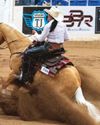
The Horse
LIFE TAKES US DOWN different paths, but I seem to be on just one, which is with the horse.
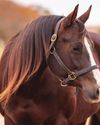
Decoding the Diseases Examined by AQHA's Six-Panel Test
The six-panel test is a diagnostic tool used to assess the genetic predispositions of horses. It's meant to discover if a horse has or is a carrier for certain hereditary diseases and traits.
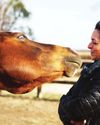
Love is Good
All horses are assured a hopeful, compassionate plan of care at This Old Horse, a program that helps not only horses but people, too.

HORSE PACKING 101
Take your trail riding to the next level with nature-filled adventures in the back or front country.

NEW HORSE; NEW PROBLEMS
Anew horse can bring excitement and energy to the barn, and even reinvigorate your passion. However, there are also a myriad of new problems that can come with a new horse, so learn how to introduce him properly to avoid these common issues.
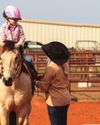
First-Timer Tips
Heading to a young rider's first event with their horse can be intimidating. Use these myths and truths to make it smoother sailing for yourself and your young rider.
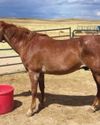
Re-Rescued: Aslan's Story
One special gelding learns about three different types of love during his rescue journey.

The Country's Hottest Horse Motels
Take your next trail-riding adventure to the next level by staying at one of these six horse motels across the United States.
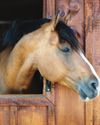
Outbreak! What We've Learned
Learn how disease outbreaks in recent years have changed the horse industry, and why it's so important to play your part when it comes to disease prevention efforts.

TRAINING THE SENSITIVE HORSE
Shift your mindset and grow your sensitive horse's pressure-handling skills to improve his confidence and your riding enjoyment.